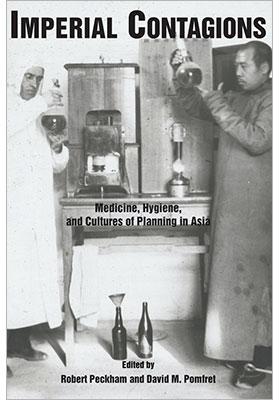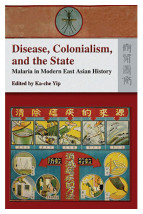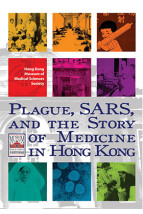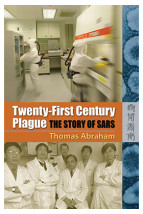Imperial Contagions
Medicine, Hygiene, and Cultures of Planning in Asia
(亞洲在殖民地時期的醫療、衛生與規劃文化)
ISBN : 978-988-8139-52-1
January 2013
320 pages, 6″ x 9″, 19 b&w illus.
Ebooks
Imperial Contagions complicates common historical narratives portraying a straightforward shift from older, enclavist models of colonial medicine to newer pursuits of prevention and treatment among indigenous populations and European residents. In a series of essays, the volume shows colonial medicine was not a homogeneous, “on the ground” phenomenon but rather a practice rife with tensions and contradictions. Indigenous elites contested and appropriated Western medical knowledge and practices for their own purposes, while colonial policies contained contradictory and cross-cutting impulses. Contributors ultimately challenge the long-standing belief that colonial regimes uniformly regulated indigenous bodies and that colonial medicine served as a “tool of empire.”
“This substantial collection greatly enriches our understanding of medicine, disease, and policy in colonial Asia. The contributors, from a range of disciplines, grapple fruitfully with questions surrounding medical space and the shift from enclavism to public health. In doing so, they make important theoretical and empirical contributions to medical and imperial history.” —David Arnold, author of Colonizing the Body: State Medicine and Epidemic Disease in Nineteenth-Century India
“Europeans in Asia developed powerful anxieties about contagion, and made many plans to keep it at a safe distance. Commercial ventures depended on mobility of people and goods, yet for the personal safety of their members the Europeans in Asia wished to stabilize and control the spaces they inhabited and the behaviors of those around them. By exploring the tensions and contradictions that arose from these efforts to stay safe, the authors of Imperial Contagions—among the best authorities now writing—offer not only fascinating accounts of historical events but fresh views of the processes often termed colonial or imperial.” —Harold J. Cook, author of Matters of Exchange: Commerce, Medicine, and Science in the Dutch Golden Age
“Imperial Contagions not only makes important theoretical and empirical contributions to the literature of colonial history and public health in Asia, but also broadens general readers’ comprehension of colonial medicine and the relevant policy practice in British and French colonies. Ultimately, it will be of great value to scholars, students, and activists interested in international studies and colonial history.” —H-Net Reviews in the Humanities & Social Sciences
“Imperial Contagions takes us a step further toward more interactive, and less bounded, histories of colonial medicine in Asia. It draws attention to the pathologizing of colonial space, the heterogeneity of medical practice, and the fragmentary and partial authority of imperial public health. It leads us to consider again the late-colonial obsession with improvement and benevolence, and the relations of this self-serving and often delusory project to later national and international enthusiasm for development. An important collection, the book complements Health and Hygiene in Chinese East Asia: Policies and Publics in the Long Twentieth Century, edited by Qizi Liang and Charlotte Furth (Durham, N.C.: Duke University Press, 2010): together these collections provide a platform for more extensive comparative, intercolonial studies of Asian biomedicine and public health.” —Warwick Anderson, Journal of Asian Studies
“This collection of essays edited by two history professors of the University of Hong Kong is an important addition to the growing literature on colonial medicine and public health in Asia. The book is interdisciplinary, with contributions from historians, geographers, and architects working mostly on British colonial cities in different parts of Asia (Hong Kong, Shanghai, Singapore, Delhi) and French Indochina in the nineteenth and early twentieth centuries. It sheds new light on the spatial management of colonial Asian cities, a set of arrangements designed to tackle epidemiological threats that simultaneously articulated deeply seated social, racial, and political conflicts and anxieties.”—Angela Ki Che Leung, Technology and Culture
“This is an important book that should be read by imperial historians, historians of health, geographers, and planners. Imperial Contagions makes a number of important new methodological, conceptual, geographical, and historiographical contributions across a range of disciplines. It provides a welcome perspective on the different responses of British and French empires to contagions. In this way, chapters open up fruitful trans-national comparisons, by providing illuminating examples of imperial policy exchange, as well as throwing up thought-provoking questions about why certain patterns were evident in some places, but not in others.” —James Beattie, Health and History





